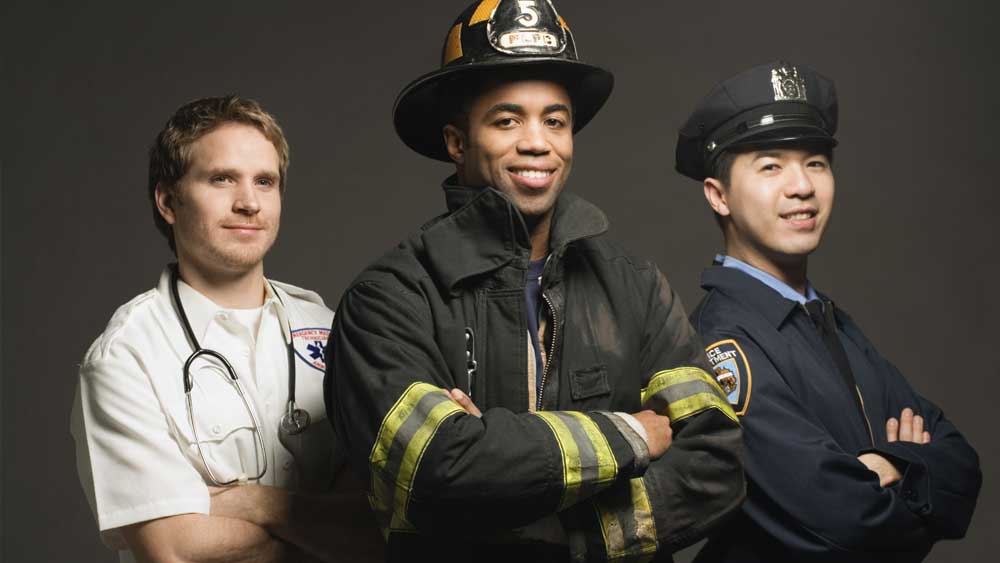The term “sacrifice” is often tossed around without giving genuine thought to what it really means.
Is it really a sacrifice to give up your place in line at the store to someone who has only one or two items? Is it appropriate to call it a sacrifice of your time to stop and help a stranded motorist with a flat tire? How about when your teenager needs help with their homework during the middle of your favorite sports team’s game?
These would all be examples of being kind, showing compassion, or just being responsible. At its core, sacrifice is giving up something important or valuable for the sake of something or someone else. Sacrifice in its truest form will absolutely cost you something—something that if the circumstances were different or the need was not present, would still be yours and at your discretion.
It may come as a surprise in a country with so many opportunities and much wealth, but the need for sacrifice is still all around us. And sacrifice can look like many different things. Even today, many Americans are being asked to not go to work, school, or gather socially with others. For certain people, this is just a mere inconvenience but to others a major sacrifice as they are without pay, social interaction, medicine and, for some, even food. Others are being required to change plans, such as cancelling a vacation or reconsidering early retirement. All of these things are, in some form, a sacrifice.
Of course the greatest sacrifice is to lay down one’s life for one’s friends1 which the Creator, Jesus Christ Himself, displayed perfectly for us when He chose to step into his creative masterpiece, live and die so that all of creation could be redeemed back to Him, restoring everything to divine perfection. Jesus’ example in John 15:13 illustrates his love and care for all of us and this is why he willingly offered to lay down his life for ours. It is interesting that Jesus thought so highly of his creative work—the earth and all that is in it, including mankind—that the sacrifice of giving his own life was worth it. The Apostle Paul affirms this in Romans 5:6 when he says, “in due time Christ died for the ungodly.” Of particular note here is that Jesus did not die for his friends or family, but the “ungodly.”
I am thankful for those who have made the ultimate sacrifice and also for those who put themselves in harm’s way everyday so that the rest of us can be safe. They are military personnel, firefighters, medics, and today doctors and nurses as they fight the current pandemic we are all facing. These sacrifices are worthy of our support and gratitude.
As Christians, we should take these examples demonstrated for us and put them on display for the world to see. There will always be opportunities for us to sacrifice—particularly during times of crisis. The world is looking at the church and waiting to see how we respond. In some sense, they are expecting us to. Will we respond the way our Creator did, showing our genuine love for our brother, or will we pass on the opportunity to be the hands and feet of Jesus? Begin preparing now for that opportunity to sacrifice and to show them the reason for the hope that is in you.2
References
1. John 15:13.
2. 1 Peter 3:15.
*Chris Kinman is Director of ICR Discovery Center for Science & Earth History.

Leading Through Sacrifice
The Latest
Liberty and the Word of God
“And I will walk at liberty: for I seek thy precepts” (Psalm 119:45).
July 4th is called Independence Day here in our country because on...
July 2025 ICR Wallpaper
"These things I have spoken to you, that in Me you may have peace. In the world you will have tribulation; but be of good cheer, I have overcome...
Valued Longtime ICR Employee Mary Smith Retires
Mary Morris Smith, an employee of the Institute for Creation Research for many years, has retired. The second daughter of ICR founder Dr. Henry M. Morris...
Man of Science, Man of God: George Washington Carver
Who: George Washington Carver
What: Father of Modern Agriculture
When: 1864 or 1865 – January 5, 1943
Where: Diamond Grove,...
The Scopes Monkey Trial: A Battle of Worldviews
Rhea County Courthouse in Dayton, Tennessee, and its statue of William Jennings Bryan
Image credit: M. Mueller
The Scopes Monkey...
Long Non-Coding RNAs: The Unsung Heroes of the Genome
Evolutionary theory holds that all living things came about through random, natural processes. So conventional scientists believe the genome has developed...
Yosemite National Park, Part 1: Tiny Clues of a Grand Picture
Yosemite National Park in California is a sure source of stunning scenery. It’s no wonder that American naturalist John Muir persuaded President...
From Inference to Theory: A Common Design Case Study
Without a doubt, humans, chimpanzees, and other organisms share similar features. An early explanation was that these features reflect similar designs...
Creation Kids: T. rex
by Michael Stamp and Susan Windsor*
You're never too young to be a creation scientist and explore our Creator's world. Kids, discover...
Entering By The Door
Recently, I hosted a visiting pastor from a large church at ICR’s Discovery Center. As I guided him through our Dallas museum, one conversation...












